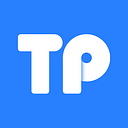TP Courses 34 — What Is DAO?
DAO is an acronym for Decentralized Autonomous Organization.
A decentralized autonomous Organization (DAO) is essentially a blockchain protocol that runs automatically with open source code, and participants in the organization collectively follow rules enforced by smart contracts on the blockchain. Therefore, decentralized autonomous organizations are entities with community governance rights, but have no centralized leading institutions.
As an organizational structure and governance model, DAO is trying to solve the needs of fairness, transparency, and efficiency in the distributed new economy.
Decentralized autonomous organizations (DAOs) are characterized by fairness because participants in the organization collectively follow rules enforced by smart contracts on the blockchain.
Decentralized autonomous organizations (DAOs) are more transparent than traditional organizations because all behavior can be seen and verified on the blockchain. Members can view the DAO’s financial statements in real-time, reducing the risk of corruption.
Decentralized autonomous organizations (DAOs) have no cultural or geographical restrictions, making it easier to join and have better global access, which improves efficiency.
DAO, a new type of autonomous organization, is in its early stage of development. In the future, it will have more in-depth theoretical research, a more reasonable incentive system, and a more distributed direction of development, and become an indispensable part of Web3.
